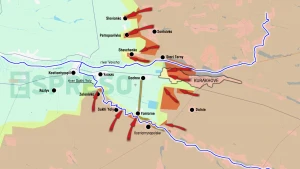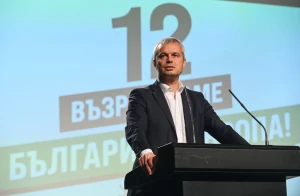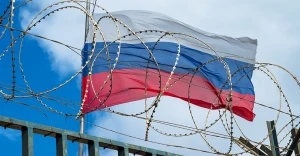
Kyiv-Pechersk Lavra is historical symbol of resistance to Moscow's aggression – Ukrainian priest Roman Hryshchuk
The Kyiv-Pechersk Lavra resisted Moscow's aggression for the longest time after the Kyiv Metropolis was forced to join the Moscow Patriarchate in the 17th century. It was then a stronghold of Ukrainians, resisting for many years the metropolitan sent from Moscow
Roman Hryshchuk, a priest of the Orthodox Church of Ukraine (Kyiv Patriarchate) from Bukovyna, shared the information with Espreso TV.
"In the 17th century, the Kyiv-Pechersk Lavra adhered to Ukrainian traditions and troops had to be involved to bring to their knees the monks of the Kyiv-Pechersk Lavra who resisted Russification. At that time, there were more than 10,000 monks in the monastery," says Roman Hryshchuk.
He explains that at that time the Lavra had concentrated production, publishing, and printing houses that printed not only liturgical literature but also children's books: primers and research materials.
"It was important for the Russifiers to destroy the Ukrainian spirit in the Lavra, so they started with banning the printing of Ukrainian primers and ended with banning the reading of Church Slavonic in the Kyivan edition, that is, close to the Ukrainian language. Instead, they obliged us to read prayers exclusively in the Moscow edition, as is typical for the Russian language," the clergyman continues and adds that Ukraine has gone through a historically formed development and there is no other canonical path.
Roman Hryshchuk suggests that the current events in religious life resonate with those that took place on the eve of Ukraine's independence.
"First, independence was proclaimed, and then we gradually built our country. We did this regardless of whether or not we would be recognized by some arbitrary countries. For example, Russia still does not recognize our state, government, church, or army. But this does not mean that we do not exist," explains Roman Hryshuk.
The clergyman believes that even though the Ukrainian Orthodox Church (Moscow Patriarchate) has painted a picture that all the Lavra monks are opposed to the transition to the OCU (KP), in fact there are many monks who will gladly stay with Avraamii.
"I believe that many of those monks think far differently from Pasha Mercedes (Pavlo Lebid - ed.). By the way, the Kyiv-Pechersk Lavra resisted Moscow's aggression for the longest time after the Kyiv Metropolis joined the Moscow Patriarchate. At that time, the monastery was a stronghold of Ukrainians and resisted the metropolitan sent from Moscow for more than 15 years. Now there are competent monks there. According to the information I have learned, about 80 monks want to stay with Avraamii, even though they are under intense pressure. For Pasha-Mercedes, these monks are mute animals who, in his view, cannot have opinions. By the way, there are recordings of Pavlo Lebid scolding a monk in a conversation for daring to call Putin the appropriate word on social media. Therefore, it is not surprising, monks have long been disenfranchised there," says Roman Hryshuk.
As the Institute for the Study of War has reported, the UOC (MP) is not an independent religious organization, but an extension of the Russian state and an instrument of Russian hybrid warfare. Russian soldiers used the UOC (MP) churches as military depots, garrisons, field hospitals, and even combat positions during Russia's full-scale invasion of Ukraine in 2022.
- News












































